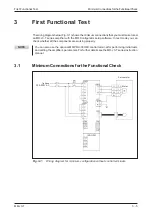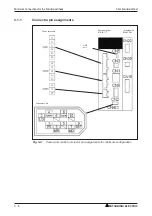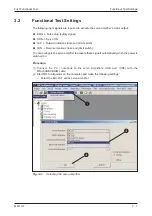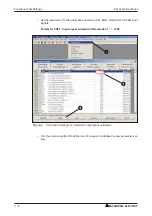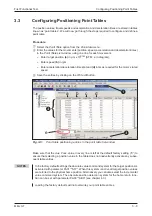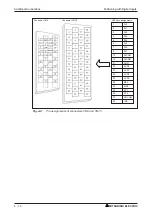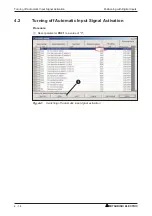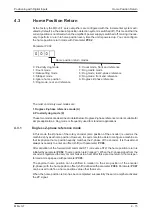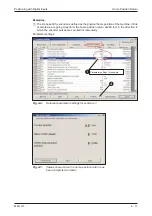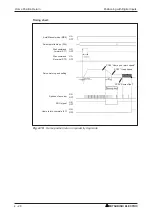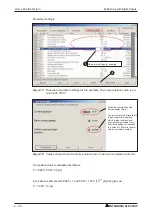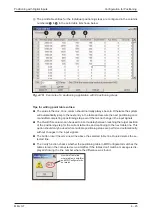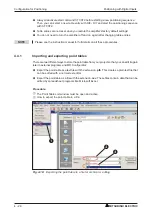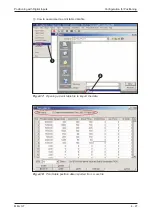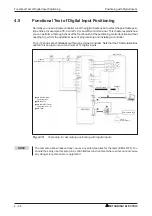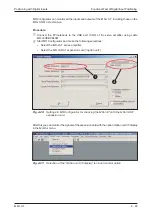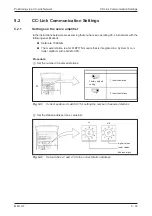
4.3.2
Dog mode home position return
In this mode, instead of the encoder Z-phase(Fig. 4-6), the DOG signal is used to switch from
“home position return speed” PC04 to “creep speed” PC05. You can use parameter PD16 “prox-
imity dog detection polarity” to specify whether a logical “1” or a logical “0” should be identified as
an active DOG signal.
As in
햲
above, the physical home position can be shifted in relation to the home (zero) position
of the encoder (Z-phase) with PC06 “home position offset (shift)”. In addition to this you can also
set a non-zero coordinate for the home position with PC07.
Conditions for the proximity dog signal:
The proximity dog signal (DOG) must fulfill the following conditions to ensure that the Z-phase of
the encoder is detected during the activation period of the DOG signal:
Positioning with Digital Inputs
Home Position Return
MR-J3-T
4 - 19
L
1
암
60
폷
2
L1 = Length of the DOG signal in [mm]
V = Home position return speed in [mm/min]
t
d
= Deceleration time in [s]
L
2
암
2
폷 욼
S
L2 = Length of the DOG signal in [mm]
욼
S = Distance for one rotation of the motor in [mm]
V
t
d

